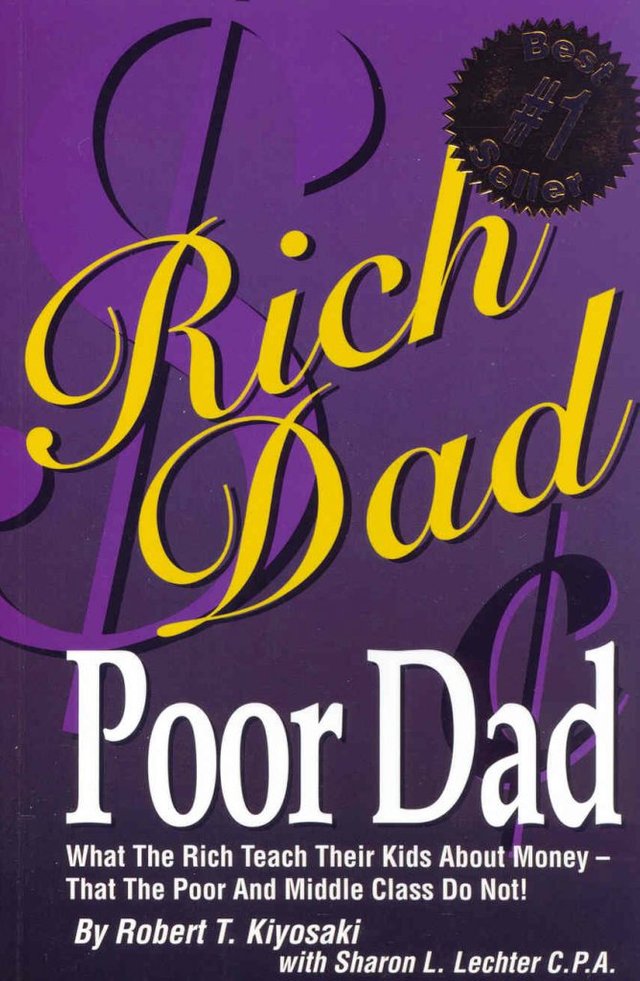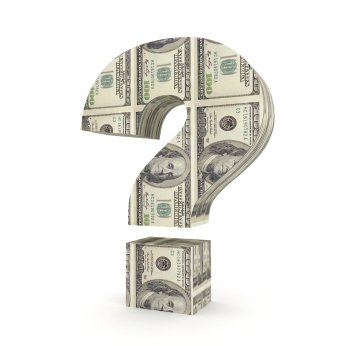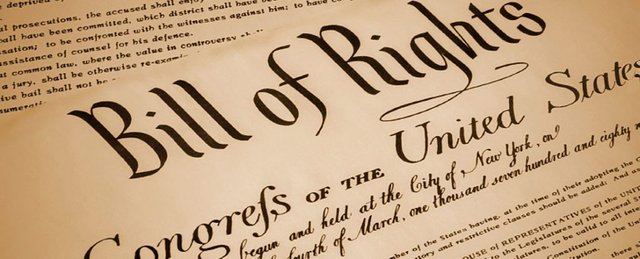How Writers Make a Living
This post was co-published at talanhorne.com
I was going to title this post "How Writers Make Money," but that's really not what I want to talk about.
Because "money" can mean anything, from gold bullion to pocket lint. And I'm here to talk about something more specific---not just how writers get money, but how they get enough money to live on nothing but writing. Because there are definite right and wrong ways to make that happen.

Because being a widely read author and a well paid author are not necessarily the same thing. Oh yes. You may just be surprised to discover how many superstars are still stuck in a dead-end day job, and how many midlisters are set for life. And a lot of the circumstances differ from case to case, but one fact tends to show up almost every time: in order to make a living as a writer, you have to know the business.
WARNING!
I am not a lawyer.
I also have no real world experience (yet) with book publishing. All my knowledge is secondhand, and the only reason I am so confident that it is correct is because there is so much agreement, in everything that can be read on the subject, that these assertions are true.
But that does not make me a lawyer, or a psychic, or someone who can otherwise give you professional assurances in this regard.
You have been warned.
So, it's time to ask the question:
Where does the Money Come From?

Lets' start with the wrong answer:
Royalties and Advances
This is how most people think writers make their living. It's a well intentioned, but ultimately meaningless, tradition. This is "The Tooth Fairy" of how writers make their money: it's a way of explaining the process to the uninitiated while being entirely disingenuous.

However, for sake of completeness, we should at least go over them here.
Royalties are an amount of money paid to the author for every copy of his book that is sold. They often come in the form of a percentage of the retail price of the book. Eight percent (8%) is common, though first-time authors are often forced to settle for six (6%). Ten percent (10%) is common for hardback copies, and established authors have been known to negotiate for anywhere from twelve and half (12.5%) to fifteen percent (15%).
And, as you can imagine, this is usually not a lot of money. There are exceptions, of course. Mega-selling books, by mega-selling authors, bring in enough royalties to provide a comfortable lifestyle. But this is not likely going to be the way that you, as an author, make your living.
Another money source, which you may be less familiar with, is the cash advance. This is the amount of money a publisher gives to an author just for signing a book contract. Advances can sometimes be quite lucrative, with sums that even exceed a typical annual salary at a well paying job.
But advances, to put it kindly, are something of a death trap.

Because a cash advance is an advance against royalties, meaning that whatever amount of money you get paid gets deducted from all future royalties on the book. If you get a $100,000 advance on your book, then the first $100,000-worth of royalties are already paid to you. If your book fails to earn enough royalties to cover the advance, the publisher may lose all faith in you and other publishers will be hesitant to work with you.
And, honestly, even mega-selling authors are not satisfied with royalties and advances, because most of them know that the real money is made elsewhere.
So let's talk about that elsewhere.
Rights

Let's spell them out together:
- Life
- Liberty
- Property (if you were thinking "Pursuit of Happiness" then you actually don't know American history)
How do these Rights Come to Be?
According to U.S. legal precedent, an author's intellectual property rights are given to him by God Himself in the same moment that the book is written.This may cause a bit of a philosophical bump for some authors. But even if you can't theologically accept God's existence, it is in your best interest to acknowledge His legal existence.
Why?
Because any rights not attributed to a power greater than government will eventually be seized by government itself. By putting your natural rights in the hands of an unreachable outside party, you create a legal chasm separating your rights from those who would trample them. That gulf can still be crossed, of course, but only at great hazard.

So as soon as your book exists, it already has a number of protections. Your intellectual property rights cannot be taken from you without your permission. So it is incumbent on you not to give them away for nothing.
This is how authors make their real money. So let's go down the list and name all the rights you, as an author, have.
Audiobook Rights

Wouldn't it be nice if you could sell your book to not one publisher, but two?
Imagine it: you sign a contract with each publisher, and each publishes their own edition of your book. Because of this, copies of your book end up in twice as many places as they would normally. Some stores would even sell both versions, side by side. Readers can then choose which version they like best. You could, potentially, get paid twice as much.
But that can't be legal, right?
Actually, it's not only legal, but common...provided you do it a certain way. That's where audiobooks come in.
Legally, the audio version of your book is a separate entity from the paper version, meaning you can sell the audiobook rights separately from the physical book rights.
Now, there are some book publishers that try to get you to sign over your audio rights as part of your book contract.
DON'T YOU DO IT!
Take what steps you need to take to retain your audio rights. One way to do this is by sacrificing a chunk of your advance (because it's expendable). If you have an agent, and they're any good, they will fight for you to retain your audio rights.
This will lead to you to have two publishers, one for paper and one for audio, which means you get two sets of royalties (and even two advances) all from writing just one book.
Foreign Rights

Wouldn't it be nice if you could sell your book to not two publishers, but dozens?
Meaning you would get dozens of sets of royalties, with dozens of editions of your book sold in dozens more places than it would otherwise be. And from this you would get your work into the hands of thousands or millions more readers than before.
You'd like that, right?
But surely this amount of overreach could not be legal. You'd never be able to keep all these different publishers from discovering your duplicity, realizing you'd played them all for saps.
Well, it turns out that this method is legal too, allowing you to sell a single book to dozens of publishers without getting sued. But it can only be done through the miracle of foreign rights.
Basically, because each country in the world is a sovereign nation, a contract that is signed in one country is often void in all other countries. As a result, most countries have their own book market, and you are allowed to sell your book individually in every one of them.
Some publishers try to get you to sign over your foreign rights as part of your book contract.
DON'T YOU DO IT!
Your foreign rights are often the juiciest plum on the tree. In most cases, they are even more valuable than audio rights. No cash advance is big enough to compensate for them. If you have to walk away from a publishing deal to keep your foreign rights, I would recommend you do it (though I remind you I am not a lawyer and not qualified to give legal advice). Just don't fall into that trap. Please.
eBook Rights
You will end up selling your ebook rights as a package with your physical book rights. Publishers want to own both.
But you must make sure that whatever contract you sign specifies the amount of royalties you get for each ebook sale. Since the ebook frontier is such a brave new world, it is hard to say exactly what percentage is typical. A lot of sources say a lot of different things, but a lot of publishers say twenty-five percent (25%) is fair, whereas a lot of authors argue that fifty percent (50%) is better.
This is one topic you should probably discuss in depth with your agent and/or lawyer.
Film, Television, and other Performance Rights

And now we get to play dirty.
Because this is the part where the author can literally get paid to do nothing. Thousands, or even millions, of dollars to do nothing.
By now, you should have already sold your one book multiple times: once to your domestic publisher, once to your audiobook publisher, and a few more times to foreign publishers (and maybe foreign audiobook publishers).
Perhaps, at this point, you believe you have already sold your one book enough times---that you shouldn't tempt fate by selling the same book again. Perhaps you should just be content with what you have.
Well, if you believe that, then there is a word that describes you. You are, to use the technical, scientific term for your kind, a LOSER.
YOU'RE SPOUTING A BUNCH OF LOSER-TALK. YOU'RE NOT DONE SELLING YOUR BOOK. DON'T YOU EVER LET ME HEAR YOU SAY THAT AGAIN!
I'm sorry you had to hear that. Daddy still loves you; he's just a little ashamed of you right now.
So lets talk about film, television, and other performance rights.
Do not give these rights away. A lot of book publishers won't even bother to try to get you to sign these over, because it would simply be too rude to insult your intelligence that much. Nevertheless, you must be vigilant to read every contract you sign, to make sure you are not ceding any of these rights. If you don't have an agent, then get a good contract lawyer who can make sure of this.
But even if your publisher makes no attempt to steal these rights from you, there are others who will. In Hollywood, there are thousands of people endearingly referred to as "Golden Retrievers".

And they are monsters.
Their purpose is to make any promise in the world, just to get you to sign over (or orally cede) your film rights. Once in their possession, they sell your rights to movie companies, pocketing the money you would have made.
Once you've avoided giving away these rights for free, the movie companies will grudgingly stoop to actually paying you.
Consider Your Options
Should any movie or television studio be interested in obtaining the rights to your book, they will usually start by purchasing the option to your film rights.
This means that they don't buy the film rights outright, but they will instead pay you to not accept offers from any other studio.
And that means you literally get paid to do nothing. The amount of money you make varies from option to option, but it is not uncommon to get paid a yearly sum that well exceeds what you would be making at a well paying desk job. Overall, you can be paid thousands, or potentially millions, of dollars for the privilege of not having your book turned into a movie. And it is glorious.
Should the studio ever decide to act upon their option, and actually make a movie or show based on your book, then you'll actually have to do a few things to keep making money (and that subject is worth a blog post of its own).
A Quick Note: Reversion Rights
The vocabulary of the publishing world can be a bit tricky. Because of this, I would like to make the following distinction:
When I say that you sell your rights to publishers, studios, etc., what I really mean is that you temporarily sell your rights to them. Meaning that you are able to get your rights back from them, under certain conditions.
As an author, you have something called "Reversion Rights". These rights specify that if the publisher goes for a certain amount of time without putting your book on bookstore shelves, or if the movie studio goes for a certain length of time without making a movie based on your property, then all rights pertaining to the property revert back to you, the author.
You must, therefore, NEVER sign a contract that does not spell out a specific reversion timetable, and one that you are comfortable with, at that. Any company that refuses to allow you your reversion rights is a company you don't need, and can safely walk away from.
The Cash Advance, Revisited
I was very harsh earlier, in my examination of the author's advance.
To be clear, if you are an established author, who knows for a fact that the next book will earn enough royalties to cover the advance, then it is to your benefit to request as large an advance as you are comfortable with.
However, a good strategy for publishing is to use your advance as a bargaining chip. If you start out with a large advance, then you can negotiate it down, in exchange for keeping your audio and foreign rights. This is perhaps the best possible situation for you, since a smaller advance is easier to earn back. And when a publisher sees you consistently earning out your advance on each book, they get the impression that you are a profitable asset. The less of a liability you are to them, the more they will like you. And a publisher who likes you can do a lot of things to make you a superstar.
Conclusion
Sorry for the long post. But there is a lot of ground to cover here. And I've only scratched the surface.
I like to think that everything in this post is common knowledge. But I know that this isn't the case. There are countless authors who rush into this business without knowing how to do business. And that leads to a lot of tragedy and heartache down the road.
You owe it to yourself to learn as much as you can before you set foot in these waters. To do that, you'll likely have to search out more qualified sources than myself. There's still so much I don't know. You need to be wiser than I am.
Thank you for reading all the way to the end. And remember, I'm rooting for you.
I have the utmost respect for writers who try to make a living off just writing. I do not have that kind of hustle and fortitude.
It's honestly not that hard to make a good living as a writer. The only reason most writers don't is because they're stupid when it comes to the business side of things.
awesome! steemit is the thing now ;)
This article about writing is really motivational and helpful ! Thanks for your hard work !
2017 Answer is through steemit they can make plenty of money. Simple and straight cut answer.
This was something very new to me Glad to read it and know about the writers world this is really incredible to know about them :)
I enjoyed this article about writing, indeed, it was long. Yet, it is helpful .
I'm glad you enjoyed it. Thanks for your support.
Awesome post!
It's one of my favorite posts on Steemit :D
That's quite the compliment. Thanks a million.
Dean Wesley's Smith's recent book deals with exactly this sort of thing. He uses his own comparison of a magic bakery. Books are like magic pies, you bake them once and then keep selling, and what ever you do don't send it out of your bakery (giveaway your rights.)
https://www.amazon.com/Magic-Bakery-Copyright-Fiction-Publishing-ebook/dp/B074D7K3ZD/ref=asap_bc?ie=UTF8
Nice. These kinds of things really need to be learned by people who already know the business. Which makes it particularly hard for new authors who don't know anyone in the business. This has resulted in a lot of cautionary tales being generated over and over again.
@talanhorne,
Long post, but I never knew those things before. I am not a writer or I can't do writings. But, knowledge that you shared is amazing. Yeah you might scratch the surface, but that's enough to feel me the knowledge that you have contain in this domain. Really appreciate your effort and if someone willing to be a writer, he/she should read this post!
Cheers~
So glad that you read the whole post.
I understand that all this may seem strange and new to someone who has no experience in this field, but every field has a few things about it that you can't learn in school. And that's what this post is for book writers.
I hope you didn't get bored. I'm glad you were able to learn a few things. Thanks for your support.
Thanks for sharing, lots of new info.